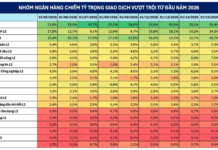According to the Vietnam Chamber of Commerce and Industry (VCCI), under the Enterprise Law, an individual holding just 25% of the capital is considered a beneficial owner of the enterprise, regardless of whether they have management authority or not.
The beneficial owner is only liable within the scope of their contributed capital or shares and is not indefinitely responsible for the enterprise’s tax obligations. In many cases, beneficial owners do not directly manage or make decisions regarding the enterprise’s operations.
Meanwhile, the purpose of the temporary exit ban is to pressure those who directly own and manage the enterprise to collect taxes. Therefore, applying this ban to beneficial owners is overly broad, infringing on their freedom of movement, especially for those who do not directly manage the enterprise.
This also risks diminishing the attractiveness of the investment environment, particularly for foreign investors, who may face travel restrictions simply because the enterprise they invested in has unpaid taxes.

VCCI recommends not imposing exit bans on beneficial owners when enterprises have tax debts.
Currently, tax authorities have numerous enforcement measures, such as deducting funds from bank accounts, disallowing invoice usage, and seizing and auctioning assets. VCCI argues that the temporary exit ban should be applied specifically and to the correct targets; they urge the drafting agency to remove this provision.
Regarding tax obligations after dissolution, the draft stipulates a 45-day deadline for filing tax returns from the occurrence of the event. In practice, enterprises submit tax settlement reports within this period.
However, VCCI notes that after dissolution or bankruptcy, enterprises must maintain minimal operations to fulfill obligations with business registration and tax authorities. This incurs costs, generating invoices and input taxes. Current laws lack a legal mechanism to address this situation. Business representatives urge the drafting agency to add provisions to handle this.
VCCI also highlights a legal gap: the draft amendments to the Personal Income Tax Law and Tax Administration Law appear to lack provisions on the responsibility of income-paying organizations to withhold personal income tax. This risks creating a legal loophole. The drafting agency should consult with the Tax Policy and Fee Management Department (Ministry of Finance) to unify and arrange appropriate content in the drafts.
Additionally, while the draft addresses tax assessment, it lacks specific provisions on the basis and methods of tax assessment and does not clearly outline taxpayers’ rights when assessed. VCCI emphasizes that taxpayers, as assessed parties, should receive explanations of the assessment’s basis and criteria. This ensures fairness and protects enterprises’ legitimate rights.
“Therefore, we urge the drafting agency to add a mechanism requiring tax authorities to disclose (or allow taxpayers to request) the reference data sources and selection criteria used as the basis for tax assessment,” VCCI recommends.
“Condo Administration: The Maintenance Fund Remains a ‘Hot Topic’”
The new laws, including the Land Law of 2024, the Real Estate Business Law of 2023, and the Housing Law of 2023, have been in effect for a year now and are gradually being implemented in practice. However, there are still many challenges and inconsistencies in both the legal provisions and their interpretation and application by managing authorities. Saigon Economic Magazine presents a series of articles analyzing notable issues in the implementation of these legal documents.
What Are the Consequences of Renting Out an Undeclared House?
“Renting out properties, whether it’s residential, commercial, or even industrial spaces, has become a significant source of income for many. The rental market is thriving, and for good reason – it offers a steady stream of revenue and can be a lucrative venture for those with the right assets. From cozy apartments to sprawling warehouses, there’s a demand for it all. It’s an exciting time to be a landlord, that’s for sure!”
What Are the Consequences of Renting Out a Property Without Paying Taxes?
“Renting out properties, whether it’s residential, commercial, or even industrial spaces, has become a significant source of income for many. The practice of leasing is a lucrative business, and those who engage in it are reaping the financial benefits.”




















